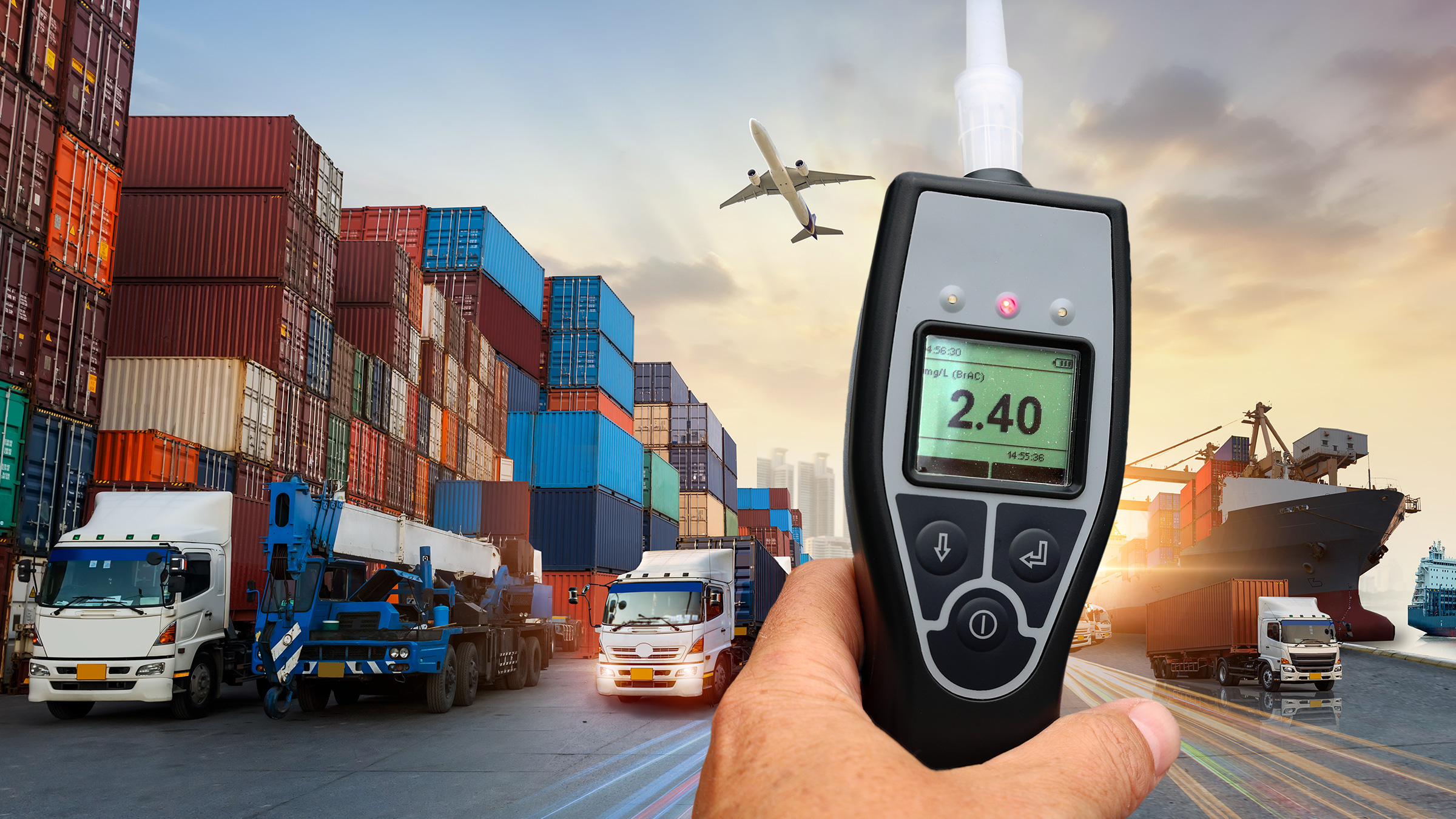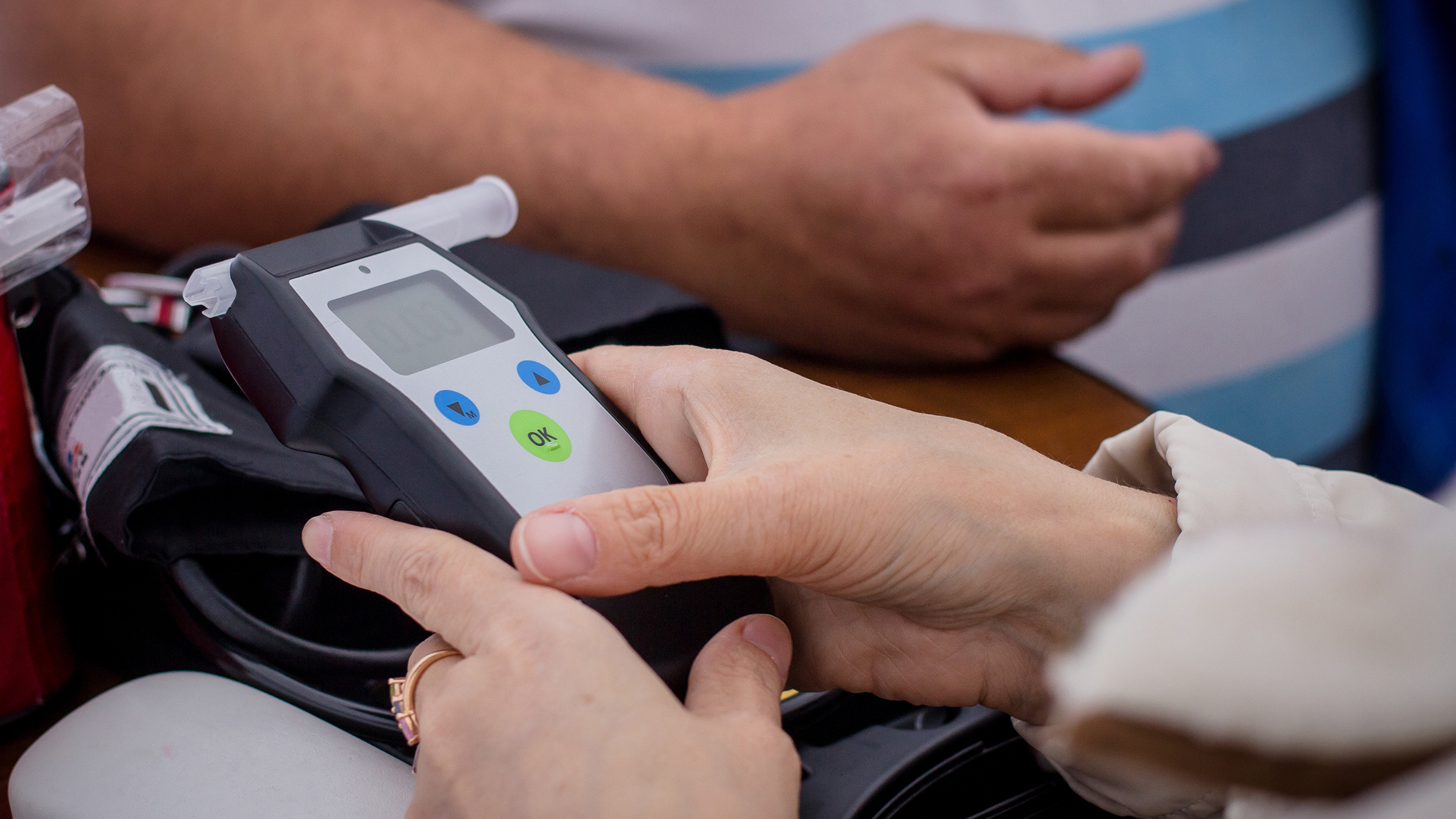What is DOT Alcohol Testing, and Who is Required to Take It?

DOT alcohol testing isn’t just a box to check; it’s a critical part of ensuring workplace safety, maintaining DOT compliance, and protecting your business from costly violations. At DATCS, we support companies nationwide through expert on-site and mobile testing services, with physical locations in Texas, Louisiana.
Whether you’re a transportation provider, government contractor, or operate in a safety-sensitive industry, understanding your DOT testing responsibilities is key. In this article, we cover what the testing includes, who needs it, and how to meet federal requirements with confidence and ease.
Contents:
- What is DOT Alcohol Testing?
- Who Must Take DOT Alcohol Tests?
- When is DOT Alcohol Testing Required?
- How Are DOT Alcohol Tests Performed?
- What happens if an employee refuses a DOT alcohol test?
- What Happens After a Failed DOT Alcohol Test?
- How to Stay Compliant with DOT Alcohol Testing
- DOT Alcohol Testing Made Simple with DATCS
- Frequently Asked Questions About DOT Alcohol Testing
What Is DOT Alcohol Testing?
DOT alcohol testing is a federal requirement that applies to employees in safety-sensitive positions regulated by the Department of Transportation (DOT). These roles involve duties where alcohol impairment could pose a serious risk to others, such as operating a commercial vehicle, repairing aircraft, or working on pipelines or railroads.
Designed to detect alcohol use that may impact job performance, the testing process helps employers uphold strict safety standards and meet regulatory requirements outlined in 49 CFR Part 40. Employers must have a testing program in place that includes random testing, reasonable suspicion, post-accident, return-to-duty, and follow-up testing.
DOT-approved testing methods include evidential breath testing (EBT) and, more recently, oral fluid testing, which offers added convenience in various work environments. With thousands of alcohol violations reported by the DOT each year, these tests are essential tools for reducing risk, avoiding penalties, and ensuring your team remains fit for duty at all times.
Who Must Take DOT Alcohol Tests?
DOT alcohol testing applies specifically to individuals performing job functions defined as safety-sensitive under DOT agency regulations. These are roles where even minimal alcohol impairment could endanger people, property, or infrastructure.
Covered employees include:
- CDL drivers operating commercial motor vehicles.
- Public transportation drivers and school bus operators.
- Railroad crew members and signal system workers
- Flight crews, including pilots and mechanics.
- Pipeline workers handling gas, oil, or hazardous materials.
If your business falls under any DOT agency, such as FMCSA, FAA, FRA, FTA, or PHMSA, you are responsible for identifying which positions require alcohol testing and ensuring those employees are enrolled in a compliant testing program.
Determining eligibility isn’t always straightforward, especially when roles overlap or evolve. That’s why DATCS helps employers review job descriptions, clarify regulatory obligations, and implement testing policies that match DOT guidelines; so you stay protected and compliant from day one.

When Is DOT Alcohol Testing Required?
DOT alcohol testing is legally required at specific points during an employee’s time in a safety-sensitive position. These testing moments are outlined in federal regulations and must be followed precisely to stay compliant and protect your business.
Here’s when alcohol testing is required under DOT rules:
- Random Testing: Conducted throughout the year without notice, using a scientifically valid selection process (excluding PHMSA, which does not require random alcohol testing).
- Post-Accident: After certain work-related incidents involving injury, fatality, or property damage. Must be done within 2 to 8 hours of the incident.
- Reasonable Suspicion: When a trained supervisor observes signs or behavior suggesting alcohol use.
- Return-to-Duty: After a DOT violation, before the employee resumes safety-sensitive work.
- Follow-Up: A series of tests required by a Substance Abuse Professional (SAP) after the employee returns to duty.
These testing types are mandatory and enforced by DOT agencies like FMCSA, FAA, PHMSA, FRA, and FTA. Employers are responsible for implementing them accurately to avoid penalties or disqualification.
| Scenario | Who Is Tested | When Testing Occurs |
|---|---|---|
| Random | Employees in selection pool (excluding PHMSA, which does not require random alcohol testing) | Unannounced, throughout the year |
| Post-Accident | Involved safety-sensitive staff | Within 2–8 hours of the incident |
| Reasonable Suspicion | Observed employees | Immediately, based on supervisor judgment |
| Return-to-Duty | Previously non-compliant staff | Before resuming any safety-sensitive work |
| Follow-Up | Per SAP recommendation | Per customized testing schedule |
How Are DOT Alcohol Tests Performed?
The DOT alcohol testing process follows strict federal guidelines to ensure accuracy, privacy, and compliance. Here’s how the process works from start to finish:
- Notification: The employee is notified when a test is required. In cases such as post-accident or reasonable suspicion testing, notification may be immediate and conducted on-site.
- Collection: A certified DATCS technician conducts the test using an evidential breath testing (EBT) device. The DOT does not permit lab-based oral fluid alcohol tests. The only approved alternative is a saliva alcohol screening device (alco strip), and if the result is positive, a confirmation test using a breathalyzer (BAT) must be completed within 15 minutes.
- Results: Breathalyzer tests provide immediate results.
Test results are handled with strict confidentiality and shared only with your company’s designated employer representative (DER) and DOT authorities when required. We ensure full compliance with 49 CFR Part 40. To streamline the process, DATCS offers nationwide on-site and mobile testing services, bringing certified collectors directly to your workplace, job site, or accident location. For urgent situations, our 24/7 emergency line is available to help you stay compliant anytime, day or night.
What Happens When an Employee Refuses a DOT Alcohol Test
A DOT alcohol test refusal is more than just saying “no.” Several actions are considered a refusal during the alcohol testing process, including:
- No-show: Failing to appear at the testing site on time.
- Leaving early: Exiting the collection area before completing the test.
- Tampering: Altering or substituting the saliva or breath sample.
- Non-cooperation: Not following the technician’s instructions or failing to provide an adequate sample.
- Each of these situations is treated as a violation under DOT regulations.
Consequences for the Employee
Refusing a DOT alcohol test is treated the same as failing one. The employee must be immediately removed from all safety-sensitive duties and cannot return to work until they begin the return-to-duty process, which includes:
- Evaluation by a Substance Abuse Professional (SAP)
- Completion of any recommended education or treatment
- A negative return-to-duty alcohol test
- Participation in a follow-up testing program, which may last up to five years
Once the negative return-to-duty test result is received, the employee may resume safety-sensitive duties while continuing to complete their follow-up testing program as directed by the SAP.
DATCS offers full support throughout this process. We ensure all documentation is properly handled, assist with compliance reporting, and connect employees with qualified SAPs. Our team manages records securely and helps keep your company prepared for audits, reviews, and follow-up requirements.
When you partner with DATCS, you can trust that every refusal-to-test situation is handled accurately, so you can stay focused on safety and compliance without added stress.

What Happens After a Failed DOT Alcohol Test?
When an employee fails a DOT alcohol test, strict federal procedures must be followed before they can return to any safety-sensitive role. At DATCS, we help you navigate the process smoothly and in full compliance with DOT regulations.
Here’s what happens step by step:
- Immediate Removal from Duty: The employee must be immediately removed from any safety-sensitive responsibilities. This is a mandatory DOT requirement to protect public safety and avoid violations.
- Accurate Documentation: DATCS securely logs all details of the failed test and compliance steps, ensuring no information is missing and reducing your risk during audits.
- SAP Referral: We connect your employee with a DOT-qualified Substance Abuse Professional (SAP) who will evaluate the case and determine the necessary education and/or treatment.
- Return-to-Duty Process: After completing the SAP’s recommendations, the employee must pass a directly observed return-to-duty test before being considered for reinstatement.
- Follow-Up Testing: Once reinstated, the employee is subject to unannounced follow-up testing as scheduled by the SAP. This testing period may continue for up to five years, depending on the case.
Failing to follow these steps can result in non-compliance penalties for your business. DATCS ensures that every phase of the process is properly documented and supported, so you stay on track and your team stays protected.
How to Stay Compliant with DOT Alcohol Testing
Maintaining DOT compliance goes beyond simply performing alcohol tests; it requires proactive planning, proper training, and up-to-date documentation. Here’s how DATCS helps you stay compliant and prepared:
- Regulation Updates: We keep you informed of the latest DOT rule changes, including updates like the expansion of oral fluid testing.
- Supervisor Training: Our certified training programs teach your supervisors how to recognize signs of alcohol misuse and follow proper reasonable suspicion protocols.
- Policy Review & Guidance: DATCS helps ensure your workplace policies reflect current DOT regulations and best practices for safety-sensitive positions.
- Secure Documentation: We manage and store your testing records with full confidentiality, ensuring you’re prepared for audits, inspections, or reporting requirements.
- Nationwide Testing Access: Whether you need on-site testing, mobile units, or prefer to visit a service location, DATCS provides reliable coverage across the U.S., with dedicated teams in Texas and Louisiana, plus a 24/7 emergency support line for urgent testing needs.
DOT Alcohol Testing Made Simple with DATCS
DOT alcohol testing doesn’t have to be complicated, especially with DATCS by your side. From navigating federal regulations to managing testing logistics, we help you stay compliant, protect your workforce, and maintain your company’s reputation.
Whether you need help building a testing program from scratch, responding to an incident, or scheduling same-day or on-site testing, we’re here to support you every step of the way.
Contact DATCS today to get a customized compliance plan, request fast mobile testing, or access our 24/7 emergency support.
Frequently Asked Questions About DOT Alcohol Testing
Q: How accurate are DOT alcohol tests?
A: At DATCS, we use DOT-certified equipment and trained technicians to deliver highly accurate, compliant, and legally defensible results.
Q: Can I get DOT alcohol testing across multiple job sites or regions nationwide?
A: Yes. DATCS provides nationwide testing coverage, including on-site, mobile, and emergency services. Whether you manage a single location or operate across multiple states, we offer reliable, consistent testing wherever your team is based.
Q: What happens if an employee refuses a DOT alcohol test?
A: A refusal is treated the same as a failed test under federal DOT regulations. DATCS ensures full documentation and handles all required compliance reporting on your behalf.
Q: Are alcohol test results confidential?
A: Absolutely. Test results are strictly confidential and are shared only with your company’s Designated Employer Representative (DER) and the DOT, in line with federal privacy regulations.
Q: Is saliva alcohol testing available under DOT?
A: A: Yes, DATCS offers DOT-approved Saliva Screening Tests (STT), which are especially helpful for remote job sites, after-hours testing, or environments where breath testing isn’t feasible.
Q: How quickly do I need to conduct post-accident testing?
A: DOT regulations require alcohol testing within 2 hours, and no later than 8 hours after the incident. Our 24/7 emergency line ensures you get rapid, compliant support when timing is critical.
Q: How fast can I schedule a test?
A: We offer on-site, mobile, and 24/7 emergency testing services nationwide. Whether it’s routine compliance or an urgent situation, DATCS is ready to respond whenever and wherever you need us.
